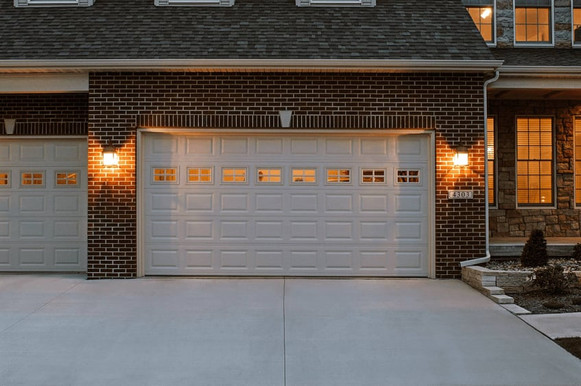
Have you ever winced at the sound of your garage door groaning as it opens or closes? You're not alone. According to a survey by the National Association of Home Builders, a whopping 82% of homeowners have experienced noise issues with their garage doors at some point.
But this racket doesn't have to be your daily dose of annoyance. In this guide, we'll break down the common culprits behind a noisy garage door and equip you with simple solutions to get that smooth, quiet operation back.
Understanding the Mechanics: Why Does My Garage Door Make Noise?
Your garage door is a complex system with many moving parts. Friction between these parts is inevitable, but sometimes, this friction gets out of control, leading to those unwanted sounds. Here are the usual suspects:
- Loose Parts: Over time, vibrations can cause nuts, bolts, and screws to loosen up. This creates a rattling effect as the door moves.
- Worn Out Parts: Like any machine, garage door components wear down with use. Worn rollers, hinges, or springs can lead to grinding or scraping noises.
- Lack of Lubrication: Just like your car needs oil, your garage door needs lubrication to reduce friction between metal parts. Without it, you might hear squeaking or screeching.
- Improper Installation: If your garage door wasn't installed correctly from the start, misalignment can cause parts to bind and create noise.
- Weather Extremes: Cold temperatures can make metal parts contract, causing them to rub together more tightly and create noise. Conversely, hot and humid weather can accelerate wear and tear on parts.
Identifying the Noisemaker: A Detective's Guide
The type of noise your garage door makes can offer clues about the source of the problem:
- Grinding: This often points to worn rollers, loose hinges, or a misaligned track.
- Squeaking: This usually indicates a lack of lubrication on moving parts.
- Rattling: Loose nuts, bolts, or screws are the likely culprits here.
- Slamming: This could be due to a loose chain drive or a problem with the opener mechanism.
DIY Solutions for the Handy Homeowner
For some common noise issues, you might be able to tackle the problem yourself. Here's a breakdown of some DIY fixes:
- Tightening Up: Grab your toolbox and check for loose nuts, bolts, and screws along the track, rollers, and hinges. Use a wrench or socket set to tighten them securely (but avoid overtightening).
- Lubrication is Key: Invest in a can of silicone spray lubricant (not WD-40!) specifically designed for garage doors. Apply a light coat to the rollers, hinges, and any other metal moving parts.
- Weatherproofing Wisdom: Extreme temperatures can worsen noise issues. Consider weatherstripping around the door frame to minimize the impact of hot or cold weather.
If the noise persists after your DIY attempts, or if you're uncomfortable working with your garage door system, don't hesitate to call in a professional for "garage door repair in Lake in the Hills." Here's where a reputable company like Eloy Garage Door can be your savior.
Trained technicians can diagnose complex problems, replace worn-out components, and ensure your garage door operates smoothly and quietly. They can also address any safety concerns you might have with your system.
A properly functioning garage door not only gives you peace of mind but also adds value to your home. So, don't suffer through the racket any longer! With a little know-how and the help of professionals when needed, you can have a quiet and reliable garage door once again.
Regular maintenance is key to preventing noisy garage doors. Schedule a yearly inspection with a professional to catch minor issues before they turn into major problems (and noisemakers)!
